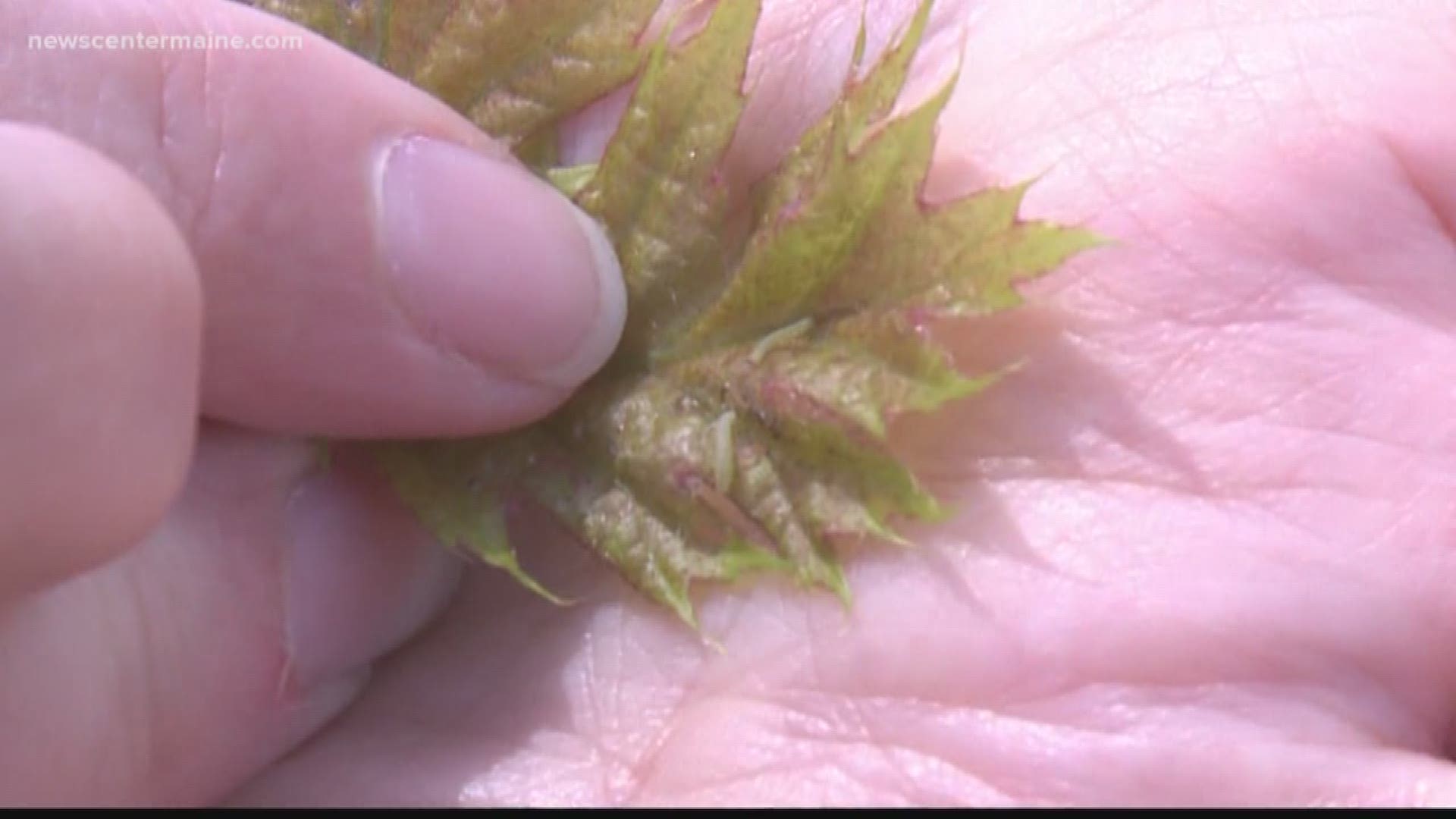(NEWS CENTER Maine) -- The Maine Forest Service is releasing a parasitic fly species to help combat winter moths that entomologists say are hurting trees across the state.
Adult parasitic flies, cyzenis albicans, are attracted to oak leaves damaged by winter moth, and will lay their eggs on leaves where they will be eaten by the caterpillars.
The Forest Service said the fly eggs will hatch only in the stomach of winter moth caterpillars, infesting them with parasites.
"This is a thing that eats you alive from the inside and then bursts out of your body -- it's not a good thing if you're a winter moth," said forest entomologist Colleen Teerling. "The eggs will hatch inside the caterpillar and then they grow inside the caterpillar like 'Alien.'"
Teerling said the Forest Service buried 1,300 of the cocoons of the winter moth caterpillars that had already been infested with the parasitic fly eggs. Those flies hatched just days ago, and mated, and the Forest Service released them on Wednesday.
The flies have been successfully used as a control strategy in Nova Scotia, parts of western Canada and the U.S. as well in southern New England. Teerling said they discourage people from using pesticides, because the chemicals can kill the ground predators that do most of the work of eating the winter moth.
The winter moth caterpillars feed on the leaves of deciduous trees and shrubs such as oaks, maples, apples and blueberries, in early spring. As the caterpillars eat the leaves over several consecutive years, tree branches and trunks die. Winter moth defoliation has contributed to tens of thousands of acres of oak mortality in Massachusetts and now there is oak mortality in Cape Elizabeth, according to the Forest Service.
Scientists say the relationship between the fly and the winter moth is so specific that even if a dog eats some of those parasitic flies, they will not get hurt.
Flies have been released in five other locations in south coastal Maine starting in 2013 and are starting to become established in Kittery and Cape Elizabeth.

